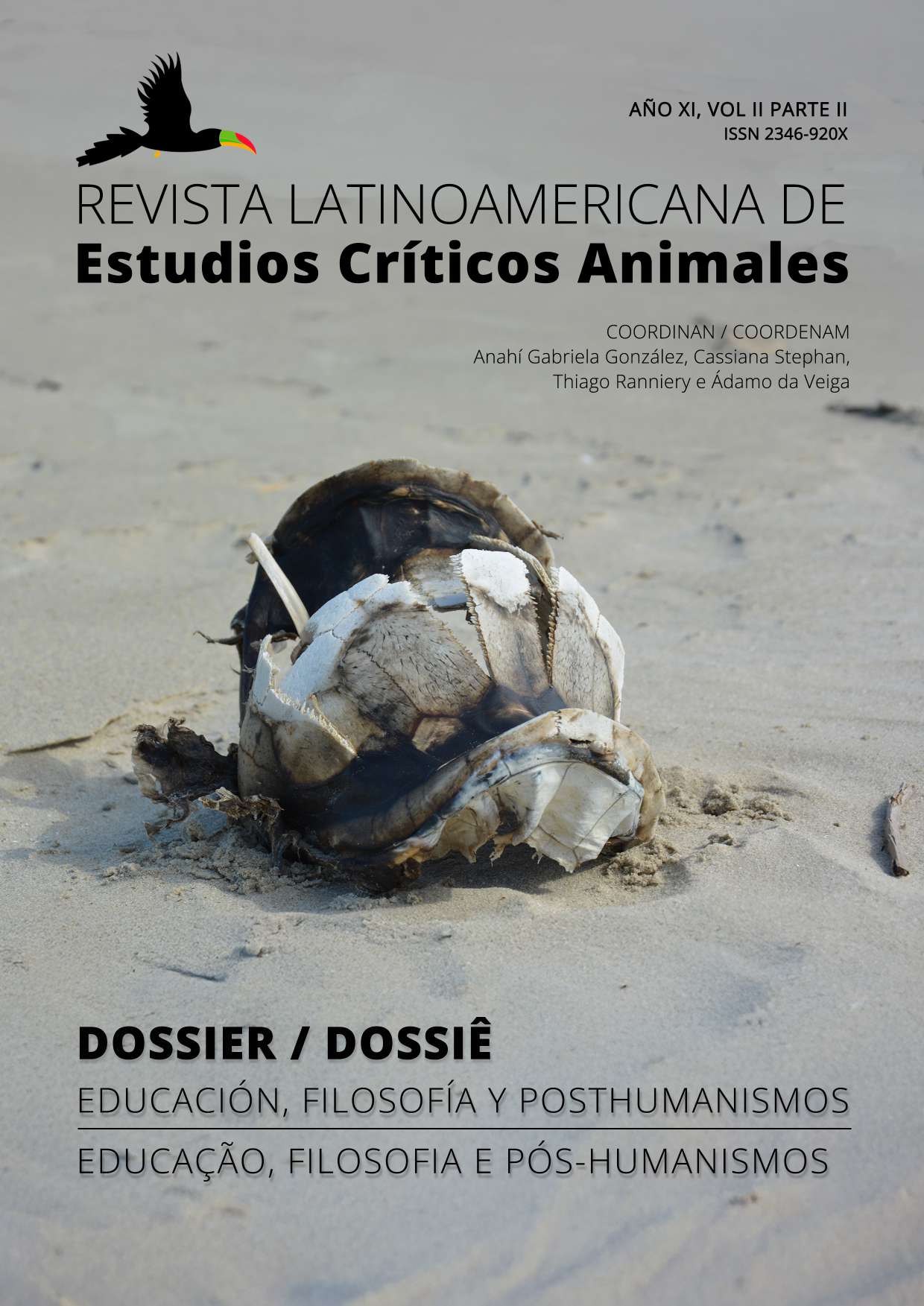The ethical-political thought of the animal question in Jacques Derrida - reading The animal therefore I am towards a humanism to come -
Keywords:
Derrida, Animal, Humanism to come, ethicsAbstract
I seek to show how the question of the human necessarily passes, in Derrida, through the animal question. This approach is justified by Derrida's contemporary reception, which points to a certain continuity between humans and animals. These theses aim to deconstruct the Cartesian inheritance of a difference in nature between these, the remnants of which would still feed the thinking of Kant and Levinas. In addition to a rethinking of the human from a phytozoanthropological perspective, I intend to provide a picture of Derrida's legacies in relation to the deconstruction of humanisms. I gathered, among Derrida's interpreters, the following stance: a certain erasure of the boundaries between humans and animals that seeks to complicate the phytozooanthropological limits on which the humanist tradition is based, claiming the need for an expansion of humanism, which could take account of the ethical-political scope of relations between humans and animals.References
Bernardo, F. (2023). A exceção Derrida – o “eleito secreto” dos animais. A veia antropo-onto-teo-lógica em questão. Revista Filosófica de Coimbra, 32 (64), pp. 303-344.
Calarco, M. (2008). Zoographies. The question of the animal from Heidegger to Derrida. Nova York: Columbia University Press.
Cragnolini, M. (2024). O animal como subjétil da cultura. Revista Ítaca, 41, pp. 85-93.
Derrida, J. (1987). Psyché. Inventions de l’autre. Paris: Galilée.
Derrida, J. (2006). L’animal qui donc je suis. Paris: Galilée.
Derrida, J. (2019). Seminaire la vie la mort. Paris: Editions du Seuil.
Haraway, D. (2002). Quando as espécies se encontram. Tradução: Juliana Fausto. São Paulo: Ubu Editora.
Maia, V. (2021). No rastro da desconstrução. Uma introdução a Jacques Derrida. Rio de Janeiro: Mauad X.
Llored, P. (2021). La violencia de la ética. Derrida para humanistas. México : El divan noir.
Nascimento, E. (2021). O pensamento vegetal. Rio de Janeiro: Civilização Brasileira, 2021.
Ombrosi, O. (2023) Le bestiaire philosophique de Jacques Derrida. Paris: PUF.
Petrosino, S. (2012). La scène de l’humain. Pensée grâce à Derrida e Lévinas. Paris: Cerf.
Saramago, L. (2024). Hermenêutica e desconstrução: por uma ética da leitura. Em P. C. Duque-Estrada (org.), Desconstrução e ética. Ecos de Jacques Derrida (pp. 65-77). Rio de Janeiro: PUC-Rio; São Paulo: Edições Loyola.
Siscar, M. (2012). Jacques Derrida: literatura, política e tradução. Campinas: Autores Associados.
Stanislas, J. (2020). Survivence(s) de l’humanité – Derrida et la question de l’homme. Paris: Hermman.
Vitale, F. (2018). Biodeconstruction. Derrida and the life sciences. Nova York: State University of New York.
Downloads
Published
Issue
Section
License
Copyright (c) 2025 Revista Latinoamericana de Estudios Críticos Animales

This work is licensed under a Creative Commons Attribution-NonCommercial-ShareAlike 4.0 International License.
La Revista Latinoamericana de Estudios Críticos Animales con ISSN 2346-920X se adhiere a las diferentes iniciativas que promueven el acceso libre al conocimiento, por lo que todos los contenidos de la misma son de acceso libre y gratuito y publicados bajo la licencia Creative Commons, que permite su difusión pero impide la alteración de la obra e incluye siempre mención al autor/a y fuente.
Es decir, una licencia de tipo Atribución-NoComercial-SinObraDerivada.
Por ello, los correos electrónicos de los autores se encontrarán a disposición de los lectores, en caso de que deseen contactarlos personalmente.




